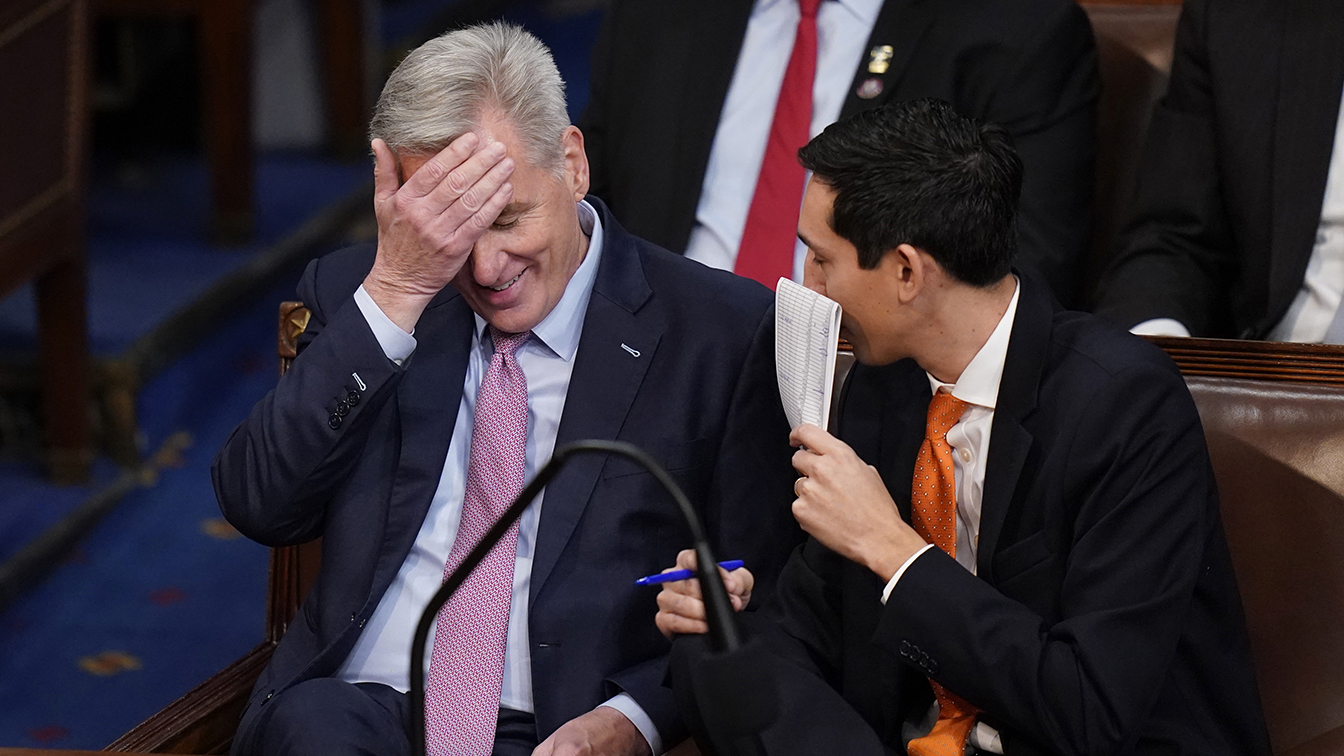What started as a procedural vote in the U.S House of Representatives engulfed in disarray as U.S. representatives struggle to reach a clear consensus on who will yield the speaker’s gavel. After 11 elections the House has yet to pick a speaker with the required 218 majority, stalling the chamber before the first days of the new congress.
Every two years at the start of a new congress, US representatives vote on who will Preside over the house floor and take on the role as speaker of the house. The election is usually seen as ceremonial due to the majority party almost always electing their party leader to the role with few historical exceptions. With Republicans winning back the house in the 2022 midterms, house leader of the Republican party, Kevin McCarthy seemed the clear processor for the speakership.
Republicans may have the majority in the House but only by a slight majority of 222 compared to Democrats 212. The underlying truth to that is the fact that McCarthy can’t afford many defections if he is to garner the 218 votes needed to make him speaker of the House.
But as the vote for speaker inched closer rumors of fellow republicans making someone besides McCarthy speaker spread from within ranks of the republican party. With just days before the vote went to the house floor, whether McCarthy would have the votes for speaker just didn’t seem as formidable as once before.
Those rumors ended up being a part of a group of republican representatives agenda to leverage the speakership to better align for a republican majority in the House. A organized group of 19 republican representatives strayed away from the unified republican candidate Kevin McCarthy and Democratic candidate, Democratic leader, Hakeem Jeffries. They broke up their votes but send a unified message to the whole house that they do not believe Kevin McCarthy is fit for speakership. In the first house selection for speaker and the 118th Congress Hakeem Jeffries leader of the Democratic Party garnered 212 votes, wow Kevin McCarthy garnered 208 votes
Congress can’t really function until it has a House speaker; the position is filled on the first day of a new Congress, Jan. 3, even before members-elect take the oath of office.
Members will meet in the morning to tie off loose ends and close the 117th Congress. Then, at noon Eastern time, the clerk of the House will gavel in the new Congress and will call a quorum. The first major order of business will be the speaker election. Democrats will place Rep. Hakeem Jeffries’ name into nomination, and Republicans are set to place McCarthy’s name.
Then the clerk will call the roll and each member will state the name of the person whom they are voting for. If no one amasses a majority of votes cast, it goes to a second ballot. If another ballot is needed, it is not clear if Congress will recess the chamber or if members will continue voting.
